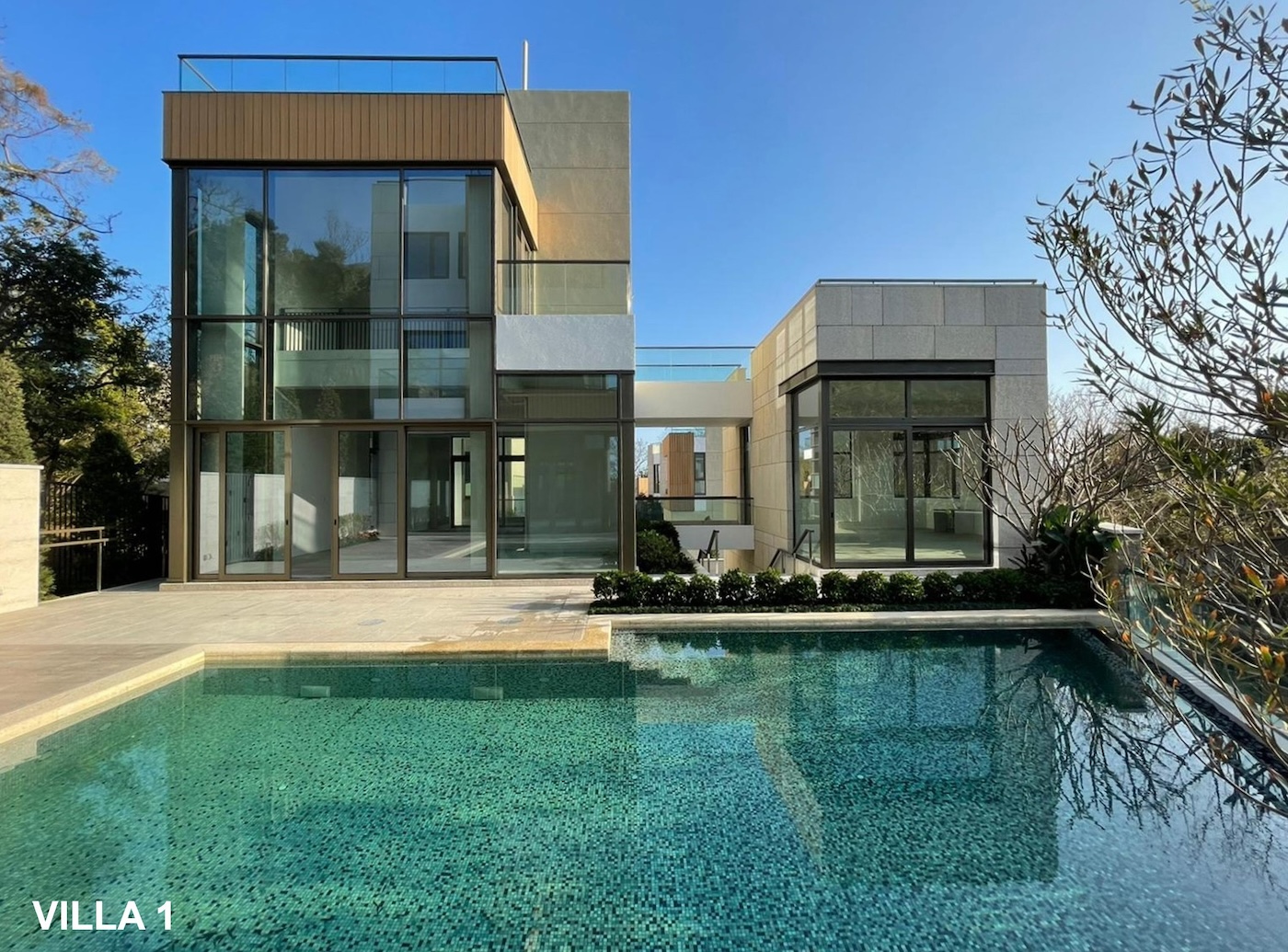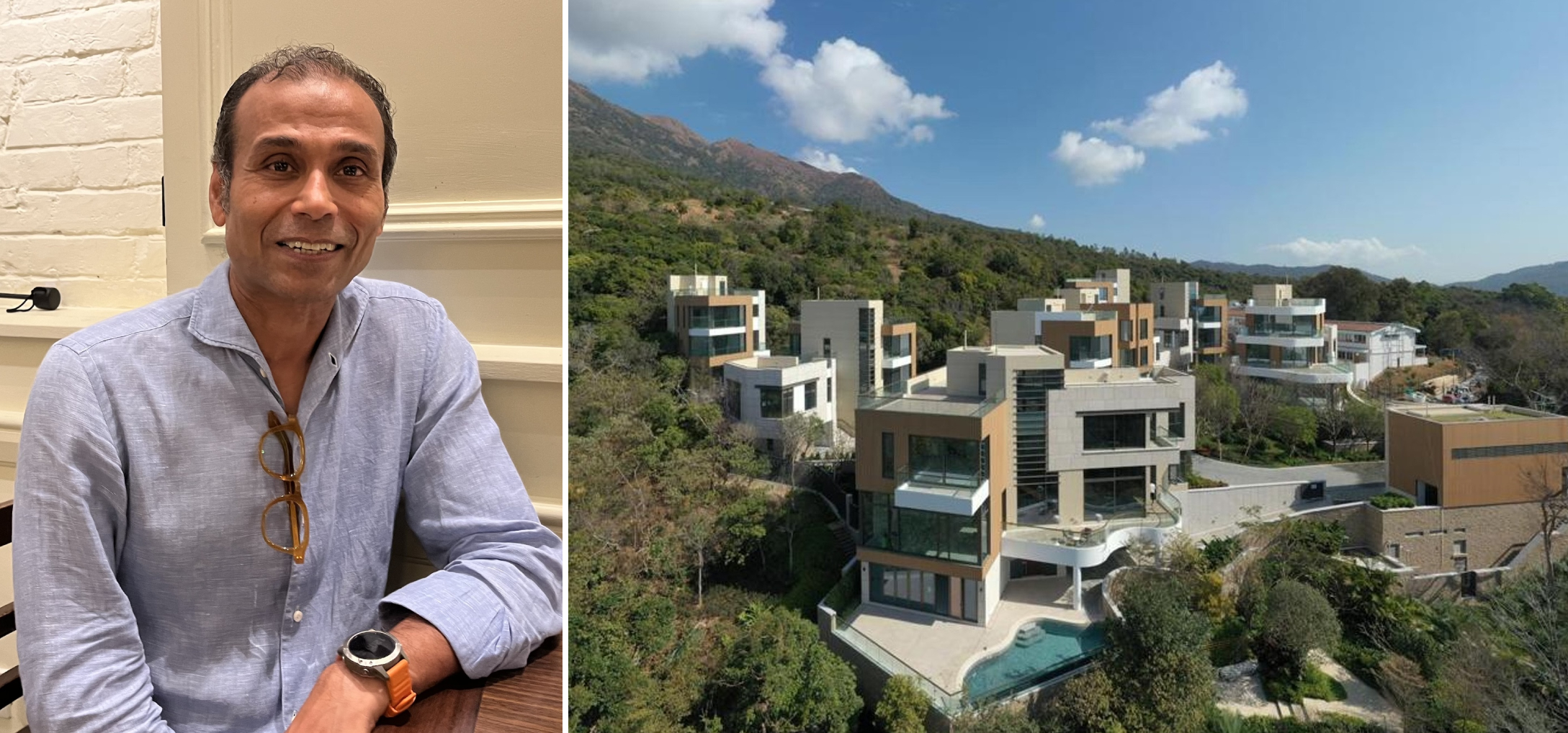
Creating spaces that instil pride
Forhad Ullah passionately believes in the power of design to create unique spaces that people feel proud to live and work in, as opposed to the repetitive ‘cookie-cutter’ template currently adopted in many of Hong Kong’s residential and hospitality developments.
“As a resident or tenant, you should be able to say ‘I feel proud to live in this building’,” he says.
It’s a guiding principle, abundantly evident in Ullah’s super-luxury villa development for the Sino Ocean group on Lantau Island, Mt. La Vie (shown above), which deservedly earned a Bronze Award in the Architecture – Best Residential / Housing category in last year’s A&D Awards.
It is a view that the founder and creative director of URBANPROJECTS has formed over more than two decades planning and designing homes, apartments, hotels, retail and entertainment spaces around the world but mostly in Greater China.
Born and raised in Bangladesh, in 1986 Ullah arrived in Beijing as an 18-year-old on a scholarship to study architecture at the city’s Tsinghua University. He recalls being struck by how underdeveloped the Chinese Capital was in those days, surprisingly less sophisticated than his home city of Chittagong. At this early stage, Ullah could see great potential for architecture in the burgeoning Chinese economy. He has been at the forefront of its planning and infrastructure expansion ever since.
Becoming fluent in Putonghua and completing his architecture degree, Ullah then proceeded to his Masters, with a thesis focusing on the operations of professional bodies, such as the Hong Kong Institute of Architects (HKIA) and the Royal Institute of British Architects (RIBA), identifying potential insights for China’s growing community of design professionals.
In 1994, Ullah relocated to Hong Kong, where he spent six years with the US architectural firm HOK, helping to grow its business in China, before setting up URBANPROJECTS with two partners in 2002.

Ullah is understandably proud of Mt La Vie, which boasts six bespoke villas, each unique in form, on a steeply contoured site of just over 4,000 sq.m. “Clad in natural materials, the villas blend into the forest environment and enhance the intrinsic beauty of the site,” he says.
URBANPROJECTS has also designed hotels and serviced apartments for the Kempinski Group, a client that values Ullah’s focus on functionality over form. “Designing a hotel is like designing a small city”, he says.
“The relationship between the constituent parts, such as F&B, guest services, functions & events, and room layout, must all be considered holistically, like a city in miniature. It is critical that the infrastructure and systems connecting these functions operate at maximum efficiency.”
Ullah also believes that living spaces must be sustainable and culturally responsive. The studio recently submitted a conceptual plan for a high-end resort on a stunning natural 50-hectare site in Zhangjiajie. Conceived as a “cultural and ecological experience”, the resort will immerse visitors in local ethnic Tuja culture, as well as the site’s physical environment of pine forests, bamboo groves and cultivated terraces.

While Ullah acknowledges the economic headwinds buffeting Hong Kong and the mainland, he remains optimistic about the future, and more determined than ever to create spaces that enhance people’s lives.